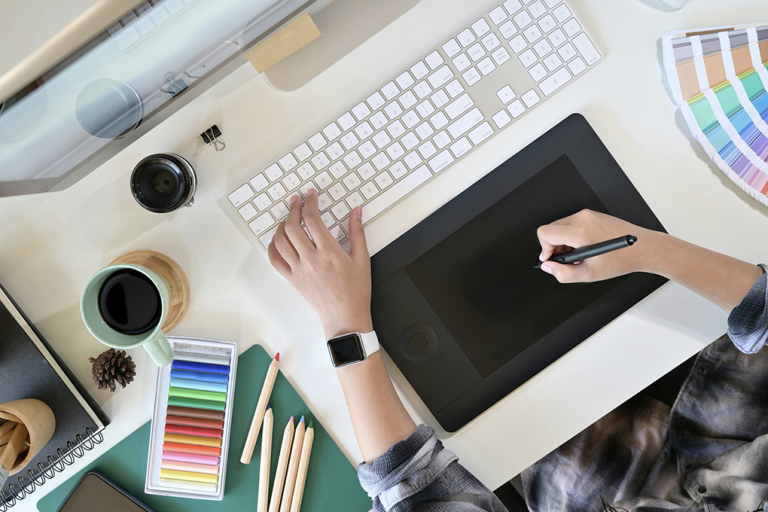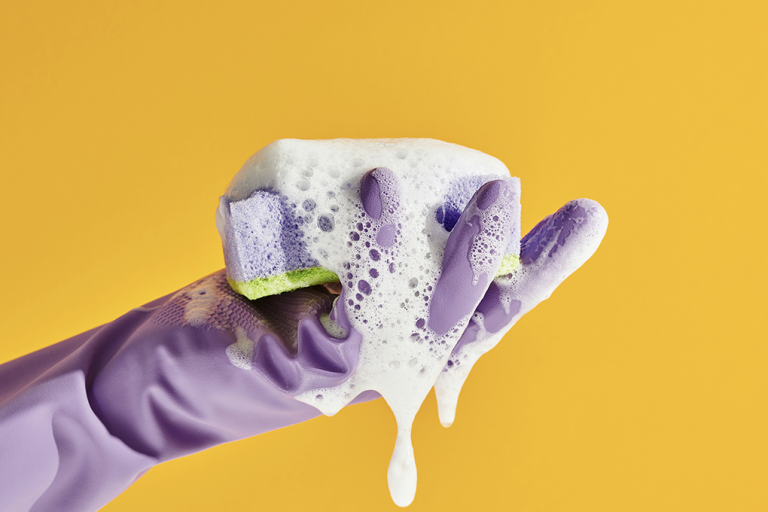The color of a company’s logo can matter. In fact, your customers might think your logo’s color is very important.
The case of Spotify, a company that provides music its customers can listen to on their phones and computers, shows how passionate customers can be about a logo. Spotify has had a green logo since the day it began offering its product to the public in 2008. In 2015, though, Spotify changed the shade of green in its logo. Its customers noticed the change immediately.
Even the shade of green you use can affect customers
“Can you Spotify the difference? Music streaming service changes its logo’s shade of green — sparking Twitter outrage” blared a headline in the Daily Mail newspaper. The article detailed Spotify’s change from a “yellow-green colour (left) to a slightly lighter, brighter shade” and how hundreds of its customers protested the change. One customer said the change was important enough for her to consider ending her $10 per month contract with the company. Several other publications posted similar articles. The company issued a statement that its “old broccoli green” was “dreary” and “the new green has a little more pop.” Another article says Spotify made the change in an effort to rebrand and appeal to millennials.
Spotify is still using its “new green” logo, so the change paid off apparently. Perhaps, the protesters didn’t like the sudden change, but they now accept and like the “new green” logo. Perhaps, the protesters were always a minority. But both scenarios prove that the color of a logo or even the shade of a color matters.
Your company might not ever have 140 million regular customers like Spotify, but a logo can help you boost your business. This article, the fourth in our series about logos, can help you decide whether a green logo will boost yours. The first article in the series explained the importance of logos and whether a company should use a red logo. The second installment was about orange logos. The third was about yellow logos.
Different companies with different objectives should consider some colors and not others. Should you have a green logo?
Green is cool
Green is a far different color than the colors we wrote about in the first three articles of this series.
Red, orange, and yellow are all considered “warm” colors. Psychologically, warm colors are more apt to spur emotional behavior than other colors. Physically, they are more apt to spur an increased heart rate. In combination, they are more apt to spur people to be active and impulsive.
Green, on the other hand, is a “cool” color, according to the article “Color Psychology: The Emotional Effects of Colors,“ which also reports that blue and purple are cool colors. Psychologically, cool colors are more likely than other colors to make people calmer and less anxious. Physically, “short-wavelength” colors such as blue and green caused people’s heart rate to slow down, according to a study on the influence of color.
“Are you looking for a peaceful and calming environment?” the “Color Psychology” article asks its readers. “You might consider using green and/or blue. These cool colors are typically considered restful. There is actually a bit of scientific logic applied to this – because the eye focuses the color green directly on the retina, it is said to be less strainful on your eye muscles.”
Green is also regarded as a color that people trust and makes them more secure. In fact, a 2003 study by academic researcher Joe Hallock sought to correlate nine qualities — courage, fear, frugality, fun, quality, reliability, security, speed, and trust — with different colors.
Green scored best in security and trust and worst in fear and speed.
Kids love green
The most surprising result about green based on Hallock’s study is probably how much more popular it is among young people than old people.
Take a look at the “Favorite Color by Age Group” chart in this report. It shows that about 30 percent of people under 18 years say green is their favorite color, behind only blue. Green challenges purple as the second favorite color behind blue among the 19-24 and 25-35 age groups. In the 36-50 age group, green falls way behind purple and yellow challenges green for third. In the two oldest age groups, green is no one’s favorite color.
Overall, green is men’s second favorite color and women’s third favorite color, according to Entrepreneur magazine’s “The Psychology of Color in Marketing and Branding” article. Green also gets very few least favorite color votes. Note that the favorite colors are all “cool” colors.
How does the research showing green is trusted and makes people comfortable and the research showing young people like green pertain to logos? Both results could be an opportunity for small companies in industries such as finance that depend on people trusting them as well as industries that want to cater to young people.
Green also conveys the following qualities, according to experts who have studied the importance of color:
- Fertility
- Growth
- Harmony
- Health
- Hope
- Money
- Nature
- Peace
- Vitality
“Above all, a green logo conveys the message that your company is environmentally friendly,” reports the article “The Hidden Meanings Behind Famous Logo Colors.“ “This explains why it is so popular with organic and vegetarian brands, as well as companies that strive for ethical practices. It can also be a good choice for financial companies, since it reminds consumers of money.”
Logos in green
Learning which companies have green logos and how their green logos have helped them could help you decide whether your company should have a green logo.
Here is a list of companies that have green logos:
- Animal Planet
- BP
- Heineken
- Hess
- Holiday Inn
- John Deere
- Tropicana
- Whole Foods Market
We expected more financial companies to have a green logo, so we researched the logos of banks and other financial companies. This article shows that almost all of them have blue logos.
Remember that research shows that companies which are looking to build trust with their customers should use cool colors. Green qualifies, so don’t hesitate to consider using a green logo if your company wants to establish an enduring financial relationship with customers, but a blue logo should also be considered.
Remember also that there are literally dozens of shades of green. This Wikipedia report lists them. It’s difficult to find research analyzing the meaning of even a couple of shades of any color, but the Entrepreneur magazine article “Your Brand’s True Colors” emphasizes that “Deeper greens are associated with wealth or prestige, while light greens are calming.”
Should you have a green logo? It depends. But consider it if you want your brand to be seen as confident, secure, natural, eco-friendly, or sustainable.
Play with color — our logo maker lets you edit the color of any design!





